
The power of children’s books with diverse representation
We asked 1000 little readers all about the importance of representation in children’s books.
Wonderbly was founded on the belief that any child, no matter who they are or what their name is, should be able to see themselves in a story. As a leading publisher when it comes to diversity representation, we want every child to feel welcome in our stories. The importance of this is echoed in the results of our recent survey in partnership with OnePoll.
We asked 1000 children in the UK aged 6 to 12 – and their parents – their thoughts on representation in children’s books. We strongly believe that when children see themselves reflected in the characters and story of the books they read, it shows them their own limitless potential.
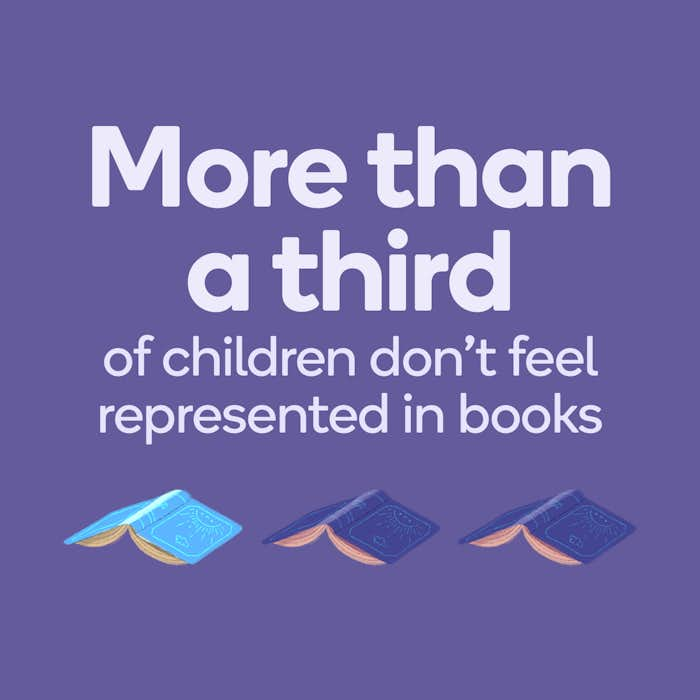
Shaping their world view
From the children we spoke to, 8 in 10 read regularly but noticed that characters often look the same and don’t always represent different views. More than a third of children don’t feel represented in books because of their gender or ethnicity.
Of the 37% of girls who don’t feel represented, 38% thought lead roles in stories always seemed to be boys. While only 17% of parents see minority races represented in the books their children read.
Asi Sharabi, Co-Founder of Wonderbly underlined the value of finding books with diverse representation: “Books are a way to educate your child on an infinite number of topics and themes that shape how they view the world.”
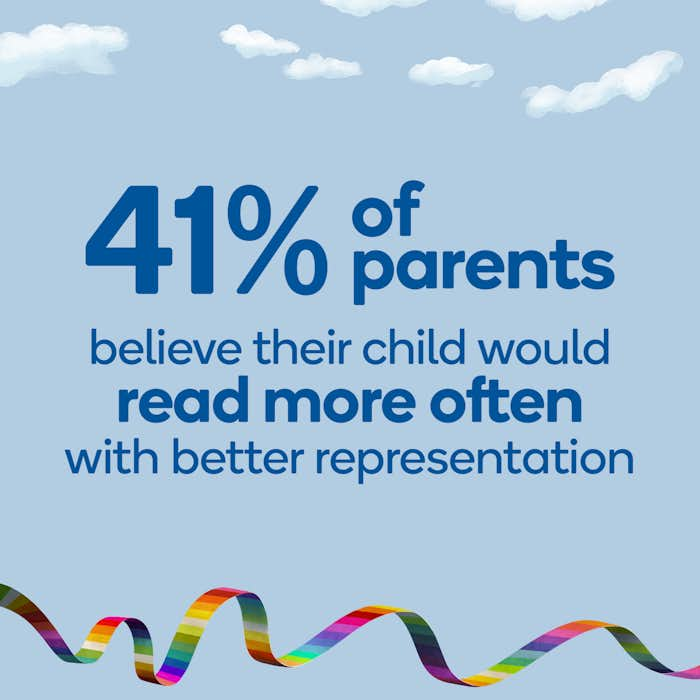
Encouraging regular reading
41% of parents believe their child would read more often if the main character was similar to them. While 37% stated that a lack of representation when it came to race and gender had put them off reading altogether.
Our research found that in order to engage a child in reading they need to feel they can relate to either the story or characters. While parents were very aware of this when it comes to the books and content they choose, they found there were lots of character traits children didn’t see in their books.
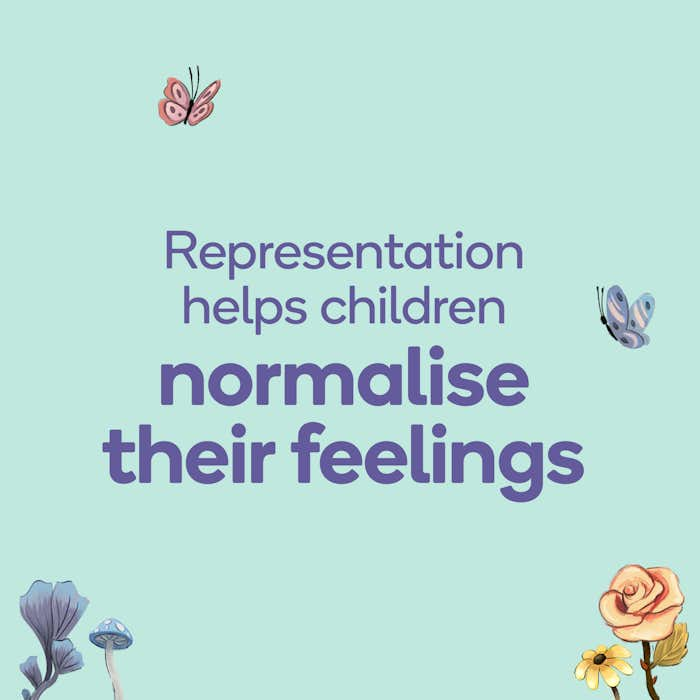
Embracing different feelings
The importance of representation was highlighted by parents to help children normalise their feelings. When a child sees a character similar to themself in the same circumstances to them, they can then relate more to the story. It can help them understand the thoughts, feelings and motivations of others, as well as providing validation for their own feelings.
Beyond the world of books, parents recognise the importance of representation in all aspects of a child’s life. 61% of parents believe it’s important for kids to see themselves in the content they consume including books, films and TV.
39% of children would like to see more people like them in movies and 37% want to see more representation in TV shows. When it comes to the characters that star in these shows almost half (46%) of children said they have never seen a character they relate to on television, while a third have asked their parents to buy books with personalities that speak, look or act like them.
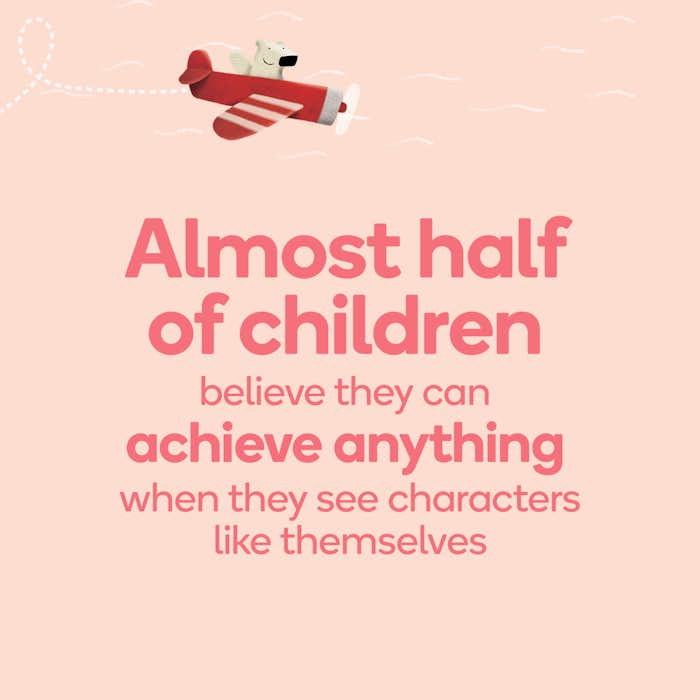
Boosting self-belief
The power of seeing yourself in a book was widely acknowledged by parents, with almost half believing that seeing characters like themselves in books enables children to feel they can achieve anything. Though 38% admitted it was difficult to find books that do represent their children.
Asi explains: “When children see themselves as the hero of a story, it helps them believe that they can do anything they can imagine; that any story they imagine could be their story.”
At Wonderbly, we know that personalisation helps children relate to the storylines and makes children more receptive to the key messages of each tale. Asi continues: “We want as many children as possible to see themselves in their own story. When you create a Wonderbly book online, you choose from a range of skin tones, hairstyles and colours to bring your child’s character to life.” With the insight from this survey we’ll be working hard to make sure our personalised books continue to reflect the experiences of all the amazing little readers out there.
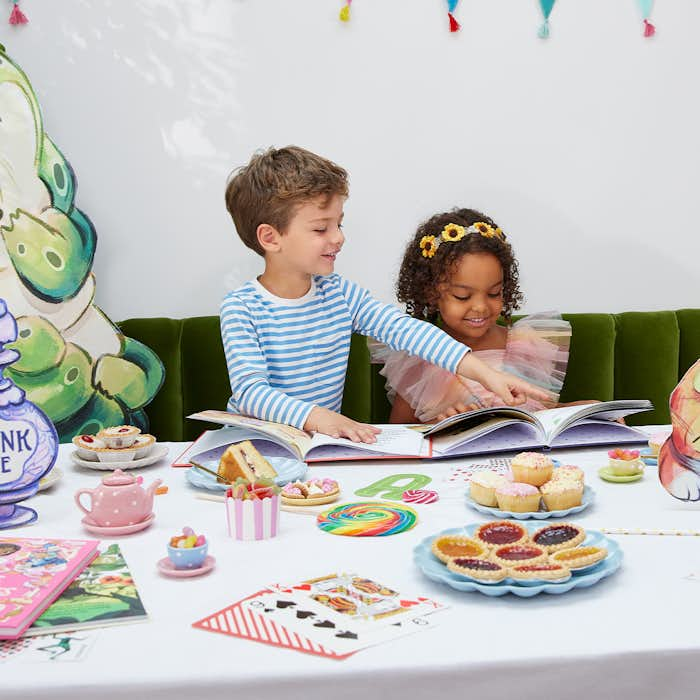
Top 20 ways kids aren’t represented in books
- Being transgender
- A physical disability
- Alopecia
- Skin conditions
- Female or non-binary/alternative gender identity
- Having same sex parents
- Having lost a parent
- Having dyslexia
- Being significantly under/above average height
- Non-heterosexual sexuality
- Religious beliefs
- Living in a flat
- Minority race
- Having divorced parents
- Allergies
- Wearing glasses
- Not having a brother or sister
- Non-native nationality
- Wearing braces
- Uncommon hair color